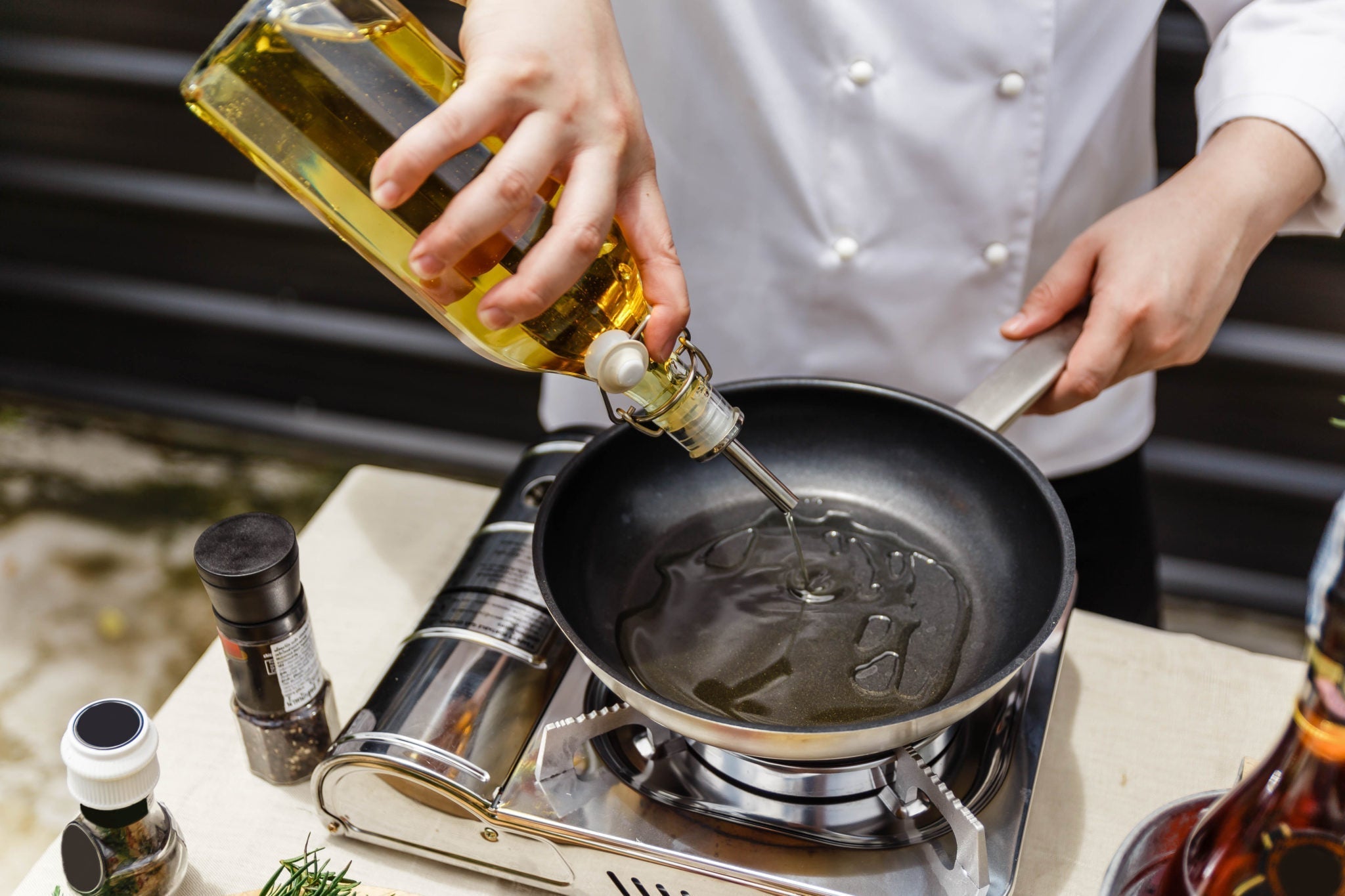When it comes to seasoning cast iron, the choice of oil plays a crucial role in achieving that perfect non-stick surface and long-lasting durability. Kitchen professionals often wonder, what oil to use seasoning cast iron? This thought-provoking question leads to the exploration of various oils and their unique properties. Let's embark on this journey to uncover the best oils for seasoning your cherished cast iron cookware.
:max_bytes(150000):strip_icc()/GettyImages-614986450-2000-f7ac499e535845c2903ff48843e0b142.jpg)
The Importance of Seasoning Cast Iron
Before diving into the specific oils, it's essential to understand the significance of seasoning cast iron. Seasoning is the process of applying a layer of oil to the cookware and heating it to form a protective coating. This coating not only prevents rust but also gives the pan its non-stick properties.
Why Use Oil for Seasoning?
The main purpose of oil in the seasoning process is to create a durable layer that can withstand high temperatures. Different oils have varying smoke points, which can influence the effectiveness of your seasoning.
Factors to Consider When Choosing Oil
When pondering what oil to use seasoning cast iron, several factors come into play:
- Smoke Point: The temperature at which oil begins to smoke and degrade.
- Flavor: Some oils impart distinct flavors that may enhance your cooking.
- Availability: Certain oils are more readily available in professional kitchens.
- Chemical Composition: Saturated and unsaturated fats behave differently under heat.
Top Oils for Seasoning Cast Iron
Here's a breakdown of the most recommended oils for seasoning cast iron:
1. Flaxseed Oil
Flaxseed oil is a favorite among many chefs due to its high smoke point and ability to polymerize beautifully. It forms a hard, smooth layer that's perfect for cookware. For detailed insights on oil choices, you can read about flaxseed oil options.
2. Canola Oil
Canola oil is another excellent choice, as it has a relatively high smoke point and neutral flavor. This oil is commonly found in kitchens and is quite user-friendly.
3. Grapeseed Oil
Known for its high smoke point, grapeseed oil is ideal for high-temperature cooking. Its flavor is subtle, making it an excellent option for anyone pursuing non-intrusive seasoning.
4. Vegetable Oil
Often available in bulk, vegetable oil is a versatile option for seasoning cast iron. However, it may not provide the same level of durability as oils with higher smoke points.
5. Olive Oil
While extra virgin olive oil is widely acclaimed, it's not always ideal for seasoning due to its lower smoke point. Learn more about why olive oil is less effective for this purpose.
Steps to Season Your Cast Iron
Now that we have determined what oil to use seasoning cast iron, here are the steps to properly season:
- Clean Your Cast Iron: Ensure the pan is free from old seasoning or rust. Check out this article on cleaning cast iron.
- Apply Oil: Use a thin layer of your chosen oil on the entire surface.
- Heat It Up: Preheat your oven to around 375F (190C) and place the pan upside down for about an hour.
- Let It Cool: Turn off the oven and allow the pan to cool inside.
- Repeat: For optimal results, repeat the process multiple times to build up a robust seasoning.
Maintenance of Seasoned Cast Iron
After successfully seasoning your cast iron, it's vital to maintain it. Regularly rinse with warm water and dry thoroughly. Avoid soap unless necessary, and remember to apply a light coat of oil periodically to keep it well-seasoned.
Common Mistakes
Avoid these frequent pitfalls:
- Using too much oil during the seasoning process.
- Ignoring the importance of high smoke points.
- Forgetting to maintain the seasoning over time.
The Benefits of Seasoning Cast Iron
Seasoned cast iron cookware offers several advantages:
- Non-stick Surface: Proper seasoning provides a natural non-stick surface.
- Enhanced Flavor: Over time, flavors build in seasoned pans, enriching your dishes.
- Durability: Well-seasoned cast iron can last generations without degrading.
Conclusion
In conclusion, understanding what oil to use seasoning cast iron is pivotal for every kitchen professional. Whether you opt for flaxseed, canola, or grapeseed oil, remember the importance of the seasoning process and maintenance. With the right techniques, your cast iron will provide excellent cooking experiences for years to come.

Frequently Asked Questions
1. Can I use butter for seasoning cast iron?
While butter can add flavor, it is not recommended for seasoning due to its low smoke point.
2. How often should I season my cast iron?
It depends on usage, but seasoning every few months or after heavy use is advisable.
3. What should I do if my cast iron is rusting?
Remove rust using steel wool and then reseason your cast iron properly.
As an Amazon Associate, I earn from qualifying purchases.






Leave a comment
This site is protected by hCaptcha and the hCaptcha Privacy Policy and Terms of Service apply.